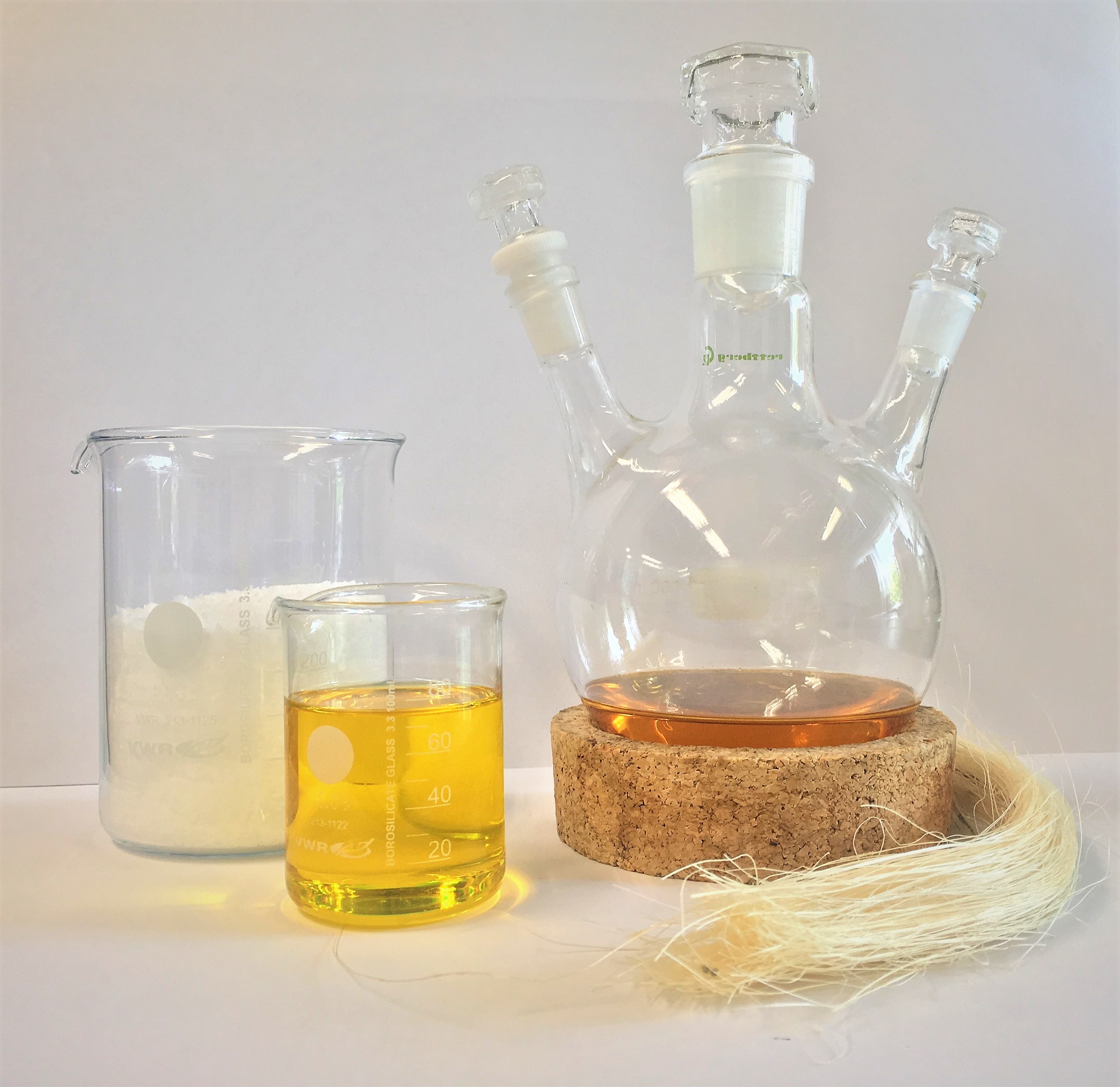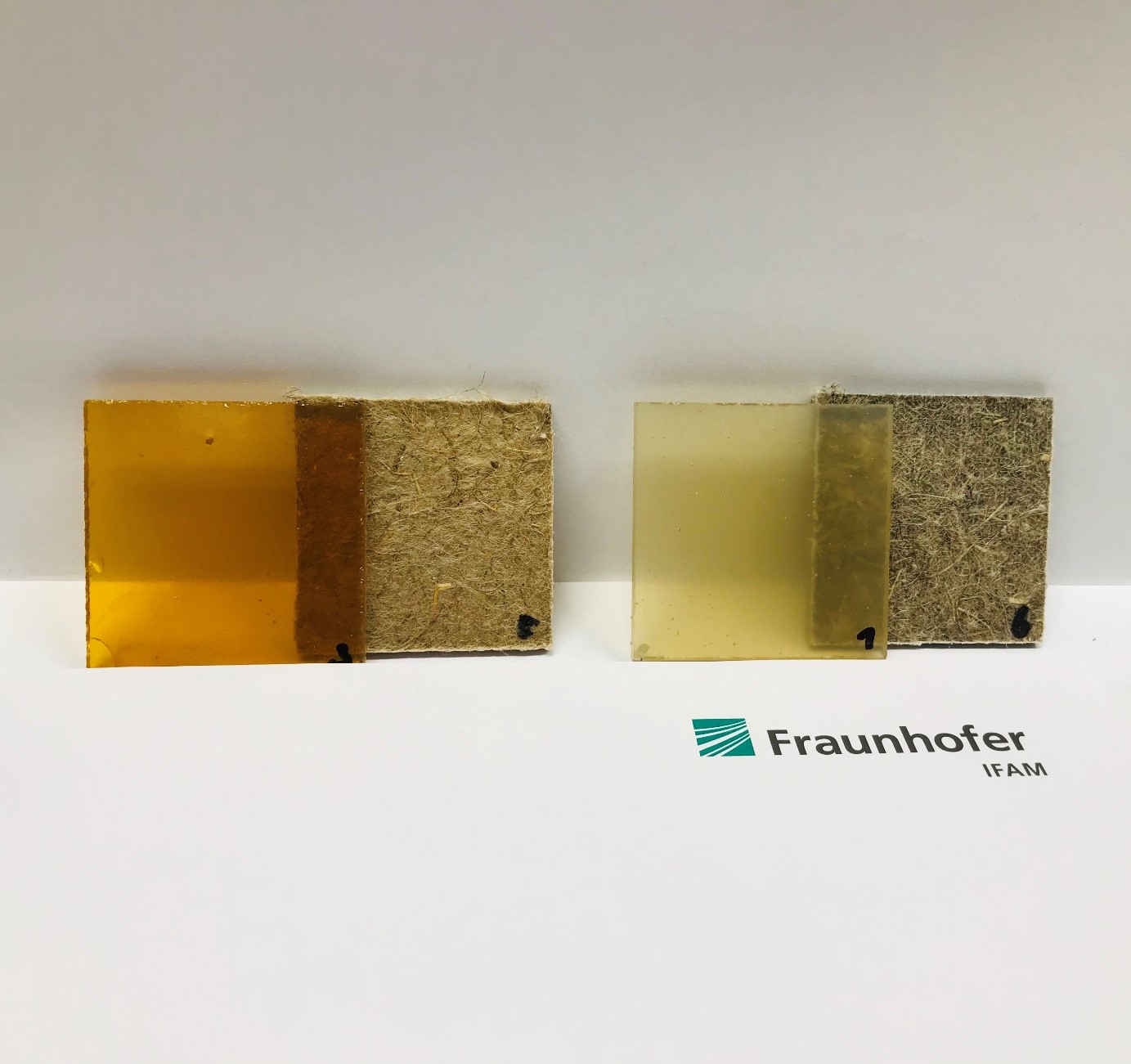Natural fiber-reinforced plastics are already used in automotive construction, but mostly with a plastic matrix based on crude oil. Although this enables lightweight construction, there is still potential for optimization in terms of resource utilization and recirculation. In the German-Brazilian project BestBioPLA, new plastics are therefore being developed that combine good mechanical and chemical resistance during the product life with biodegradability as an option for the end of the product life. The biobased content in the polymer development should be as high as possible.
Ecological assessment of new plastics must be holistic
The use of renewable raw materials alone does not make a material sustainable: such a material must be viewed holistically and have a positive impact on the life cycle assessment compared with existing materials. In addition to the starting materials, these considerations also include the energy flows during polymer synthesis and the production of fiber-reinforced plastics. The use phase, for example over several years in the car interior, is also taken into account. To ensure that a newly developed material has a chance of establishing itself on the market, the economic efficiency of the processes is also considered. These evaluation processes fundamentally accompany material development and the manufacturing concepts designed for it in order to be able to identify corresponding "hot spots" at an early stage.
New polymer can be combined with regionally available natural fibers
A novel crosslinked polymer system based on polylactic acid (PLA) has been developed at Fraunhofer IFAM. This basic structure is now being further optimized so that curing conditions and temperature resistance of the material can be adapted. In addition, manufacturing concepts are being developed for combining the new plastic with natural fibers and effectively processing it into high-quality fiber composite components using industry-oriented manufacturing processes, such as compression molding. The project partner INVENT GmbH in Braunschweig provides support in manufacturing and validating the systems. As soon as the processes have been established with flax fibers native to Europe, they are to be transferred to sisal fibers from Brazilian cultivation. The aim is for the materials to be produced from regional resources, thus avoiding costly transport routes.
Back into the cycle
At the same time, there is a close exchange with the project partners in Brazil, who are looking at the extent to which and under what conditions the materials exhibit biodegradability. To this end, standardized polymer and fiber composite samples are stored in soil under defined conditions and checked at regular intervals to determine the extent to which they have changed. Depending on the resistance of the samples, microorganisms can realize the degradation and decomposition of the material. For this purpose, different samples - with and without fiber reinforcement - have already been sent to Brazil and stored there.
The project "BestBioPLA - Balancing act between durability and biodegradability - fully bio-based PLA composites with long-term durability" (FKZ: 033R209A) is funded by the German Federal Ministry of Education and Research (BMBF) in the funding measure "CLIENT II - International Partnerships for Sustainable Innovations" in the framework program "Research for Sustainable Development (FONA3)".


